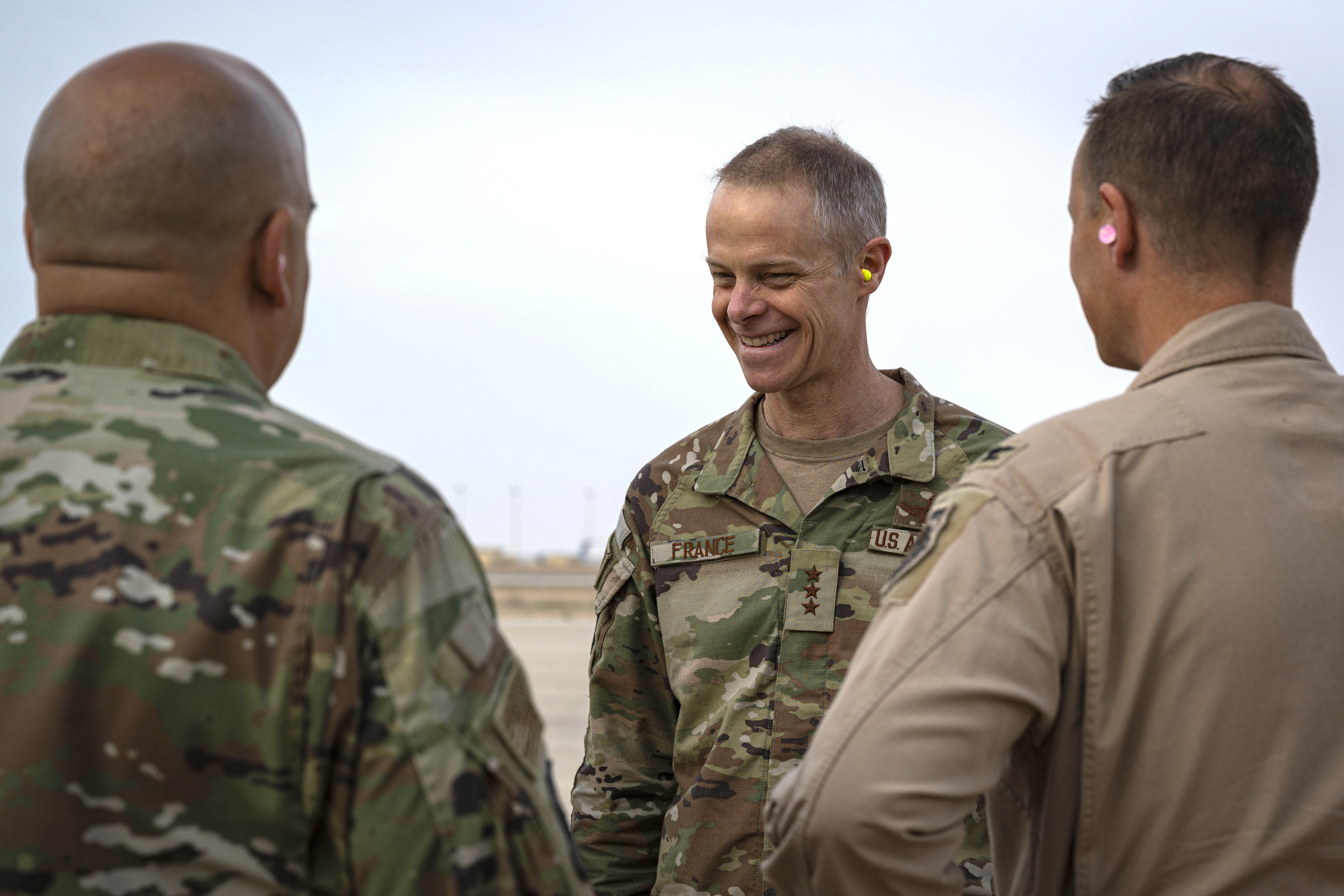The U.S. military was unaware of the unprecedented Israeli ballistic missile strike earlier this month on a Hamas compound in Doha, Qatar, until it was already inbound, one of its senior leaders has confirmed. The situation was further compounded by attention being focused on threats emanating from Iran.
In the aftermath of the attack, there had been questions as to why the various highly advanced air defense systems and sensors, both American and Qatari, which would normally provide alert to an impending attack on Qatar, had not provided warning and defense. Now we have a better understanding of what happened from a U.S. perspective.
You can read our initial reporting on the Israeli raid on Doha on September 9 here, as well as our follow-up, which looked at the degree of damage inflicted, here.
Lt. Gen. Derek C. France, the commander of Air Forces Central (AFCENT) and the Combined Forces Air Component Commander for U.S. Central Command, was discussing the implications of the Israeli airstrike at the Air, Space & Cyber Conference in National Harbor, Maryland, today.

“This strike that Israel did against the Hamas target in Doha was something that we had no indications and warnings of, because our surveillance and all our attention was not put on [it],” Lt. Gen. France said. “It wasn’t something that we expected.”
Qatar is a key U.S. partner in the Middle East. Al Udeid Air Base in the country is a major hub for U.S. military operations in the region, which was notably subjected to an Iranian missile barrage back in June.
“I can say that we did not get a warning about this happening,” Lt. Gen. France stressed. “Our systems were the first indication that we had. And then there was discussion at some point with my counterparts in Israel, but our systems noting the attack was underway was the first indication we got.”
The AFCENT boss further confirmed that “while we have exquisite systems and things that can detect a lot of different things, those things are typically focused on Iran and other things where we expect an attack to come from.”
This is a reality we had pointed out in the aftermath of the attack, as well.
The lack of warning of the Israeli airstrike is, Lt. Gen. France said, the major operational lesson learned. He noted “the importance of indications and warnings and having the right systems, whether that’s space-based, air-based, non-traditional, to understand those attacks as they’re happening.”
Lt. Gen. France’s comment about “our systems were the first indication” that some kind of attack on Qatar was in progress makes sense. The U.S. military has the ability to detect the launch of ballistic missiles globally, but tracking them during their post-boost midcourse voyage at very high altitude is a more limited capability. The Pentagon hopes to change this in the future by quickly developing and deploying a space-based tracking layer that can follow ballistic missiles during their midcourse journey.
“Although they knew it was happening because of those detection systems, it was from a source and a direction that we weren’t expecting,” he continued.

Speaking today, Lt. Gen. France added, “The sensing capability is there. It’s not so much a direction kind of thing. It’s what we were overall expecting to happen and having those indications of warnings that are out there.”
Israeli officials said the Doha strike was carried out by 15 Israeli fighter jets, firing 10 precision munitions against a single target, the BBC reported, citing Israeli media.
The Israeli Air Force (IAF) fighters were over the Red Sea when they fired air-launched ballistic missiles, an unnamed U.S. defense official told the Associated Press. In this way, Israeli aircraft didn’t need to enter the airspace of any Middle East country, and the missiles arrived from a direction that the air defenses in Qatar were not focused on looking. The missiles would have also passed over Saudi Arabia at very high altitudes, likely outside the Earth’s atmosphere.
ALBMs available to the IAF include an air-launched version of the Israel Aerospace Industries (IAI) LORA (Long Range Artillery), a short-range ballistic missile originally developed for surface launch. There is also the Rafael Rocks, that was developed from Israel’s line of Sparrow ballistic missile test targets. Meanwhile, the Israel Military Industries (IMI) Rampage, which is based on a guided artillery rocket, would not be relevant here due to the long ranges involved. Israel’s highly precise air-launched ballistic missiles have quickly become critical and somewhat famous weapons after their use on Iran on multiple occasions, and especially during the war between it and Israel in June.

The IAF hit a compound where negotiators for Hamas were meeting to consider a Gaza ceasefire proposal put forward by the U.S. government. The attack killed six people.
According to White House spokesperson Karoline Leavitt, U.S. President Donald Trump “was informed of the impending strike by his military and alerted Qatar’s leadership,” although the timeline for this remains unclear.
For their part, Qatari officials claimed that they only found out about the attack after it had begun.
Other than preparedness for unexpected eventualities, in terms of potential attacks, Lt. Gen. France explained that the other important lesson learned is how the U.S. military communicates and coordinates with its Qatari partners and other partners in the Gulf.
With that in mind, Lt. Gen. France said that integrated air and missile defense is one of his main areas of focus. “That we can do that in as integrated a fashion as possible with our partners in the Gulf. And that starts with interoperable equipment. So when they buy U.S. Patriot [air defense systems], and we have U.S. Patriots, the degree that we can operate efficiently together is a big part of what we’re pushing in the theater.”

Lt. Gen. France also said he wasn’t concerned about future U.S. military access to Qatar following Israel’s airstrike on Doha, although he admitted that “there certainly is some tension as a result of that, in my mind, goes to the importance of developing relationships and having presence that matters.”
Reflecting the importance of those relationships, Lt. Gen. France confirmed that he had a conversation with the Qatari Air Chief “right immediately after that happened” on September 9.
Lt. Gen. France’s remarks today shed some more light on the mystery of how Israel pulled off its strike in Qatar, although there remain unresolved details. With more time, we may well learn more details about this unprecedented operation, one that succeeded in catching both the U.S. and Qatari militaries almost entirely off guard.
Contact the author: [email protected]